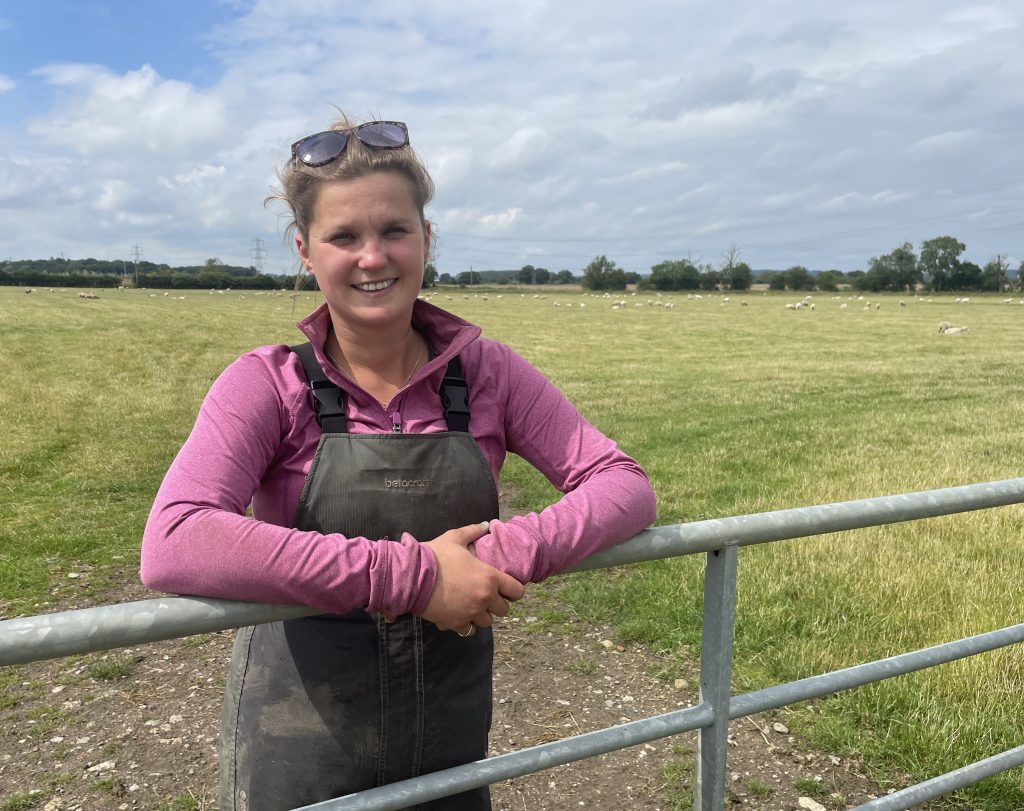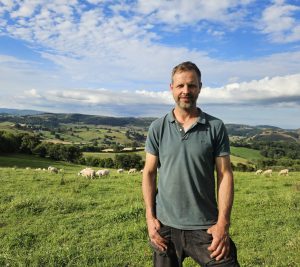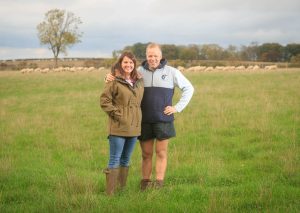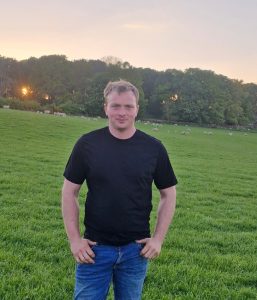with thanks to Rachel Murdoch and Fridlington Farms, Sutton on the Forest, York
Proof of the power of maternal genetics can be found at Fridlington Farms, where 16 years on after carefully selecting the Highlander to fit a low input forage-based system, ‘it still does what it says on the tin’, says Rachel Murdoch, shepherd to the unit’s 2,000 ewe flock.
Fact file
- 3,000 acres in five-year rotation including 600 acres grassland
- 1,000 Highlander ewes and gimmers
- 1,000 Aberfield cross Highlander ewes and gimmers
- 1,000 sows
“We’ve a sustainable and profitable easy care, closed, outdoor lambing flock; I’m able and happy to manage the enterprise myself because we’ve the right genetics from Innovis and the right management system. The unit continues to be focused on maximising kilos of lamb per forage acre, so grassland management together with root crops have a major role to play,” she explains.
“The bad weather hit us really hard during this year’s lambing which starts 10 April, however the ewes just got on with it. I continued to check them twice a day, three times if I could. Intervention was minimal – around 3% or less. The lambs are wick, as soon as they hit the ground they’re on their feet and sucking. The ewes had plenty of milk and they really do look after their lambs and take them with them.
“Overall, 90% of the flock lambs within the first three weeks, and the rest by the end of five weeks.
In terms of scan and numbers reared, we deliberately don’t flush the ewes. We are where we want to be with the Highlanders, but the crossbreds could be slightly higher which is something we’re improving year on year.”
Fridlington Farms flock performance 2023
| Highlander | Aberfield x Highlander | |
| Scan % | 190 | 175 |
| Five-week tag % | 180 | 165 |
| Shearling ram : ewes | 1 : 100 | |
Source: Fridlington Farms
The ewes go on to wean their body weight at 12 weeks by when the first lambs are on course to finish at 22kg target weight by 16 weeks. “Seeking to add some extra size to the lamb carcase, the maternal Aberfield was introduced and successfully lambed down in 2020. Those ewes are put to a terminal sire and grade within the R 3L bracket with quite a lot of Us. Approximately 75% of the flock is finished off grass and the remainder overwintered on fodder crops.”
The Highlander has had a major role on the unit since 2008 when Fridlington’s owner, Stuart Stark was introduced to the genetics on a trip to their native New Zealand. “He found the Highlander had been selected for unassisted lambing having narrow shoulders and a smaller head, these sheep were good grazers and matured at a relatively smaller 60kg. They were bred from performance recorded stock and appeared extremely consistent and equally important, they provided the opportunity to build a closed flock eliminating buying in replacements which would have got very expensive. The rest is history,” she says.
Rachel’s father, Ian Murdoch shepherd at Fridlington Farms for 38 years, established the Highlander flock making selection decisions on the invisible maternal traits – milk, ease of lambing and eight-week weight and choosing Elite performance recorded rams from Innovis, those with the highest EBVs. “He’s also made sure these rams were up to a standard we approved of,” she says.
I feel it’s an honour for me to take on the legacy….I started in 2020 just three weeks prior to lambing, but you couldn’t say I was straight in at the deep end; I’d helped Dad virtually all my life and was aware of how the system worked.
Following Ian’s decision to step back and head into semi-retirement, Rachel says: “I feel it’s an honour for me to take on the legacy. After going through a stiff interview process, being offered the job to take over from Dad was a dream come true; it’s something that happens on family farms, but the opportunity very rarely happens in the employment field. I started in 2020 just three weeks prior to lambing, but you couldn’t say I was straight in at the deep end; I’d helped Dad virtually all my life and was aware of how the system worked.”
Continuing to adopt the enterprise’s same strategy, she says. “Sixteen years later and it still works just as well. I’m confident to buy Elite Highlander and Aberfield rams from Innovis unseen – they just turn up, and I’m continuing to rigorously select ewe lambs as replacements and surplus for private sales, while we’re always seeking to improve our forage management. This season we’re scheduling more lambs away off grazed grass having introduced for the first time 75 acres of herbal leys which we are planning to split and mob graze.”



